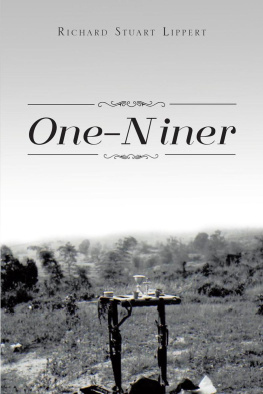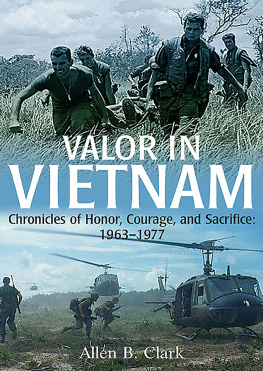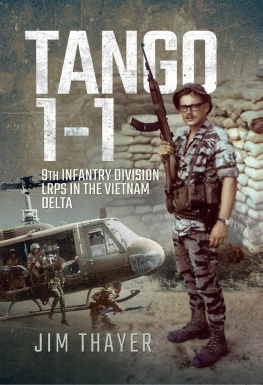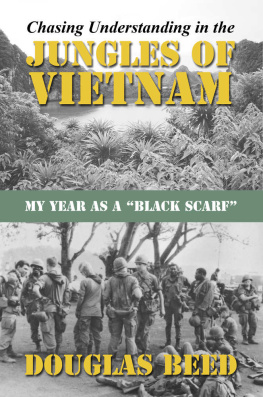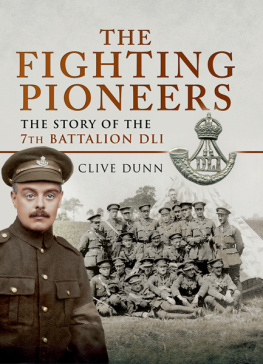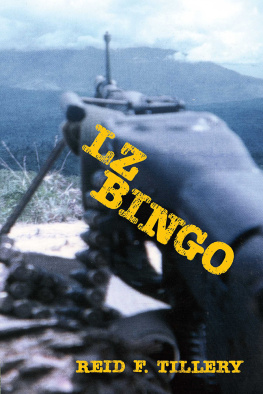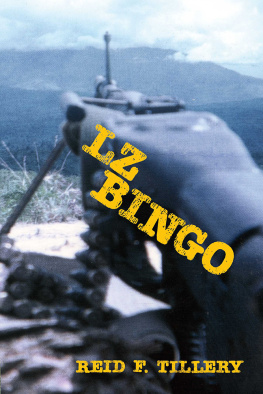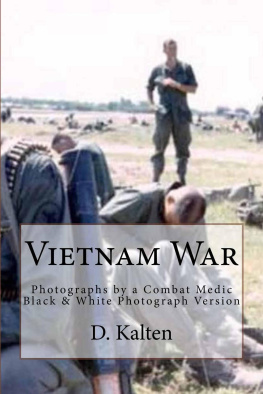DEDICATION
To the guardian angel who watched over me in Vietnam, helping me to survive while so many others did not.
Further dedicated to my wife, Cristina, my son Justin, my brother Robert, and my partners at STORM, who encouraged me to write about my experiences, and to Tom Foster, who served with me briefly in Vietnam; Cain Bridgman, who helped save my life and recommended me for the DSC; and to Major Norman E. Orr, who let things slide while I was serving under him in Vietnam.
ACKNOWLEDGMENTS
I want to thank the 25th Infantry Association for posting numerous pictures, Tropic Lighting News issues, and other valuable information I used to research this book. I specifically want to recognize LTC Clifford Nielson for posting his diary while he was the commander of the 4/23 of the 25th Infantry to the Web site. This was most helpful to me in doing research and for placing the many incidents in my memory in a time sequence and in perspective of the bigger picture. I also want to thank retired LTC Cain Bridgman for spending time with Tom Foster and me, explaining some of the big picture battles and incidents we were engaged in while serving under him in Vietnam. Without Cain Bridgman, I might not be here to tell this story! Additionally, I wish to thank Tom Foster, who was involved in several battles with me and helped me to remember specific incidents and details.
I also want to thank my friends Nick Pierce and Jeff Ruege, who after reading the book helped to identify errors in the initial release, my wife Cristina for her support and to Joan Porter who did the final editing of the book.
PROLOGUE
As I am writing this book some forty-five years after I served in Vietnam, I am sure that many of my recollections are clouded by time. Some of the incidents are as clear as if they happened yesterday, and others are somewhat vague. As an infantryman I did not keep a diary, nor did I write many letters back home. We were fighting for our lives and the elements, and unlike senior officers who had writing materials and the time to reflect, we did not. Likewise, we rarely knew where we were at any point in time, why we were there, and what others were doing around us. To the infantryman, his world is a very small place, knowing only what is going on a few hundred yards around him at any one time. Being scared, dog tired, hungry, dirty, wet (or dusty, depending on the season), hot, cold, infected with ringworm and jungle rot, constantly attacked by insects and reptiles, and generally miserable most time did not help for us to record our experiences. Yet I have a vivid recollection of many of the battles and incidents which impacted me during my five months in the mechanized infantry.
I have read well over a thousand books on war and history and more than a hundred books specifically on the Vietnam War. I have a much better appreciation and understanding of what happened to me while in Vietnam than I did at the time. Likewise, I have done research and have many of my documents, records, and awards from Vietnam for reference. I have also met at least two of the soldiers I served with who helped fill in the blanks for me. I am especially grateful to retired LTC Cain A. Bridgman, who was our battalion operations officer (S-3 Major) during my service and who helped get me out of our dangerous ambush on Friday, September 13, 1968. Later, then Major Cain A. Bridgman recommended me for the Distinguished Service Cross, our countrys second-highest medal for valor, which I ultimately was awarded. I linked up with Cain some forty-five years later to thank him and to talk about our service. He was most helpful in giving Tom Foster, another survivor from our platoon, and me an overview of some of our operations and filling in recollections of specific incidents. Cain was wounded by a mine explosion under his APC on the same road where I was wounded just a month previously. Cain also received a Silver Star, the countrys third-highest medal for valor, during his service in Vietnam. Likewise, my new friend, Tom Foster, who I met some forty-three years later by chance in Roswell, Georgia, also served in my unit. Without knowing each other at the time, we served in adjoining squads and tracks for two weeks in constant combat before we were both wounded on the same day in May of 1968. On this day, Tom was shot twice by an AK-47 and evacuated to Japan whereas I was sent to the hospital and then back to the field. Tom served the five months prior to my joining Alpha Company and was wounded twice and received a Silver Star Award for bravery in action.
I was also fortunate to locate in my research the daily diary of LTC Clifford C. Neilson (Colonel retired), who was our battalion commander from May 12 through November 13, 1968. His diary was most helpful in determining where our company was each day, and it mentioned many of the operations and battles in which I took part as an infantryman. Obviously, with a thousand men and five companies under his command, his view was on a high level. He would have had little or no knowledge of what happened to our platoon or squad and certainly not to me as an individual line soldier. Some of his recollections conflict with mine as we had very different experiences and viewpoints. I saw things in my immediate area while he had an overview of the situation. I was also in the direct line of fire, so every moment to me was life or death whereas he had the advantage of viewing the situation from afar and not under fire.
One of the most difficult aspects of writing this book was to place the many incidents I recall in some semblance of order and to attempt to tie them to dates. In this, Lieutenant Colonel Neilsons diary was most helpful. I tried as much as possible to tie my experiences to the colonels diary where he mentioned our companys operations. I tried to match up my experiences and the specific incidents I recall with his diary as it was much more accurate than my memory, especially when it comes to dates and places. Sometimes incidents mentioned by Lieutenant Colonel Neilson and my experiences happened about the same time, but the dates do not align exactly. For example, I recall when one of our soldiers was run over by a tank. I was perhaps one hundred yards away when it happened and saw the bloody aftermath. The lieutenant colonels diary notes a similar incident but several days earlier when I was in our base camp recovering from wounds. In fact, being run over by an armored vehicle almost happened to me on several occasions. I heard of it happening to others a couple of times but did not witness these other events myself. In his notes, Lieutenant Colonel Neilson notes that a major on his staff was run over by a track. Of course, many times we operated independently as platoons, squads, and even as individuals (such as listening posts or LPs with two men or ambushes with three to four soldiers), so what I was doing on a specific date could differ significantly from what our company was doing. For example, my platoon or squad could have been guarding a bridge, outpost, or section of a road, while the colonels notes would have mentioned our company operating in a different place with different experiences. In some situations, such as the ambush on September 13, 1968, my recollection on the ground is far different than what the colonel recorded in his diary. My awards, notes from the original debriefings, and historic documentation match my recollections and conflict with the colonels. In this instance, I have pointed out where there are differences between the two versions of the event since we both participated in the action, me through the entire action and the colonel after the major ambush was affected.


